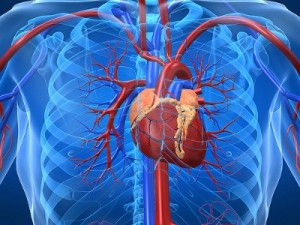Faster Heart Rates Linked To Early Death
Apr 22nd, 2013
 Your pulse may tell you how long you’ll live. A new study from Denmark suggests that people with faster heart rates have higher risks of early death, regardless of their fitness level.
Your pulse may tell you how long you’ll live. A new study from Denmark suggests that people with faster heart rates have higher risks of early death, regardless of their fitness level.
The finding provides more evidence of the dangers of having faster resting heart rates among men and women.
What’s the problem with having a high heart rate? “A high heart rate does not necessarily mean disease,” said Dr. Magnus Thorsten Jensen, study author and cardiologist at Copenhagen University Hospital Gentofte. “But we know that there is a very strong and significant association between high heart rate and life expectancy.”
Previous research by the same authors found that people with resting heart rates of 80 beats per minute die four to five years earlier than those with heart rates of 65 beats per minute. “To put that into perspective, it is the same difference in life expectancy, in the same individuals, as having a lifetime cancer diagnosis or not,” Dr. Jensen said.
The link between heart rate and life expectancy has been studied for more than a decade. Generally, physically fit people have lower heart rates than those who don’t get much exercise. That brings up the issue of whether higher heart rates are simply an indication of poor lifestyle choices.
The new study aimed to determine whether high heart rates can cause early death even among those who are fit and healthy. Researchers indeed found that link and suggested that “resting heart rate is not just a marker of fitness level, but an independent risk factor.”
The study, published in the journal Heart, analyzed data from nearly 2,800 men who were followed for 16 years beginning in 1970 when they were middle-aged.
After adjusting for factors such as age and lifestyle, researchers found that the risk of death increased by 16 percent for every 10 beats per minute increase in resting heart rate.
Higher heart rates are the first signs of underlying diseases, such as diabetes, heart disease, or lung disease, Dr. Jensen suspects.
The authors recommend that the normal range of resting heart rate of 60 to 100 beats per minute should be reconsidered since the higher rates seem to indicate poor health. Having a reliable and affordable health insurance plan can be crucial in managing these risks, providing access to regular check-ups and necessary treatments to address potential underlying conditions early on.
Related posts from our blog:
No related posts.
Tags: faster heart rates | heart disease
Posted in: Simon Bukai | Comments Off